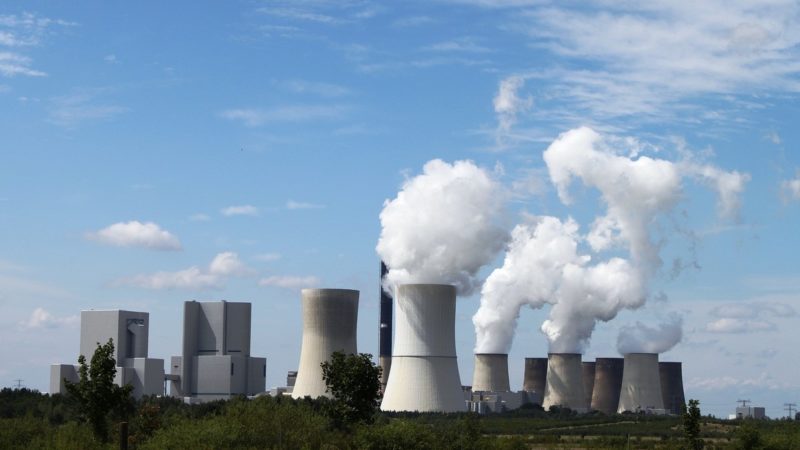A cross-party committee of MPs is warning the government that 'no deal' for our nuclear sector could have extremely damaging consequences.

One thing we can agree about the Brexit referendum is that no-one thought the future of Britain’s nuclear industry was on the ballot. It turns out it was.
Few people were voting on our energy security, but the government’s decision to leave Euratom – the little-known treaty that regulates the movement of radioactive materials in Europe, risks undermining Britain’s nuclear sector.
Today, MPs will debate Euratom as part of the committee stage of the EU Withdrawal Bill.
As the general secretary of the largest union representing nuclear engineers and specialists, carrying out some of the most high-skilled jobs in the UK, this matters to me.
Ministers have the chance to back a cross-party amendment, from Labour’s Rachel Reeves and the Conservative’s Ed Vaizey, calling for a pause before any irrevocable decisions are made that could damage the industry.
It comes as the Business, Energy and Industrial Strategy (BEIS) Committee warns that ‘no deal’ would be a ‘highly risky option’ for the nuclear sector.
The stakes are high. Britain is home to the world’s first successful civil nuclear programme and remains a world-leading nuclear power with decades of accumulated experience and expertise. Our highly-skilled workforce is the envy of the world.
Britain relies on nuclear power for more than a fifth of its electricity needs – at a time when demand for power is set to rise thanks to innovations like electric vehicles.
More than 80,000 jobs rely on the nuclear industry. Last week’s publication of proposals for a Nuclear Sector Deal illustrates that many more jobs could be created with the right leadership and support from government.
However, the UK nuclear industry is already dealing with uncertainty over the speed of new nuclear projects, investment in research and the development of new technology. And the Brexit process – in particular leaving Euratom – is only adding to that.
The government has already presented its Nuclear Safeguards Bill to Parliament. While this is welcome, it only deals with nuclear safeguards – just one of the many issues involved when it comes to leaving Euratom.
Ministers have said that the UK will replicate the Euratom inspections to ensure that our nuclear facilities meet the highest global standards. Yet rushing to leave Euratom in March 2019, alongside leaving the European Union, is a risk too far.
At the very least, we need an adequate transition period to recruit, train and deploy a new workforce in a highly specialised area. Our members in the Office of Nuclear Regulation know there are no short cuts when it comes to nuclear inspections.
We also need answers on Britain’s future involvement in the Joint European Torus (JET) project on nuclear fusion, both because it is EU-funded and also to protect the global scientific workforce sited in its Oxfordshire base.
Ministers say that discussions with other countries around new nuclear arrangements to allow us to trade after Brexit are going well. Yet the risks of not getting this right are high.
A new deal with the United States alone requires the proposals to pass in both houses of Congress. If we get this wrong, it could cause further uncertainty for business and investment in jobs.
The challenge is to ensure that Britain can make the most of these opportunities to bring jobs and prosperity home while sharing our expertise on the global stage.
This becomes much more difficult if we jump off the cliff-edge on Euratom without thinking through the consequences.
Ministers should listen to the cross-party coalition of MPs today and delay plans for a hard nuclear Brexit.
If there was ever a time to listen to the experts, this is it.
Mike Clancy is General Secretary of Prospect
To reach hundreds of thousands of new readers we need to grow our donor base substantially.
That's why in 2024, we are seeking to generate 150 additional regular donors to support Left Foot Forward's work.
We still need another 117 people to donate to hit the target. You can help. Donate today.



